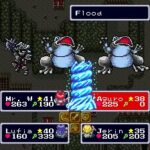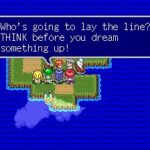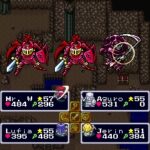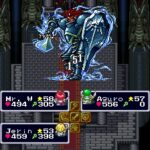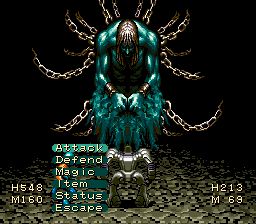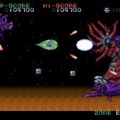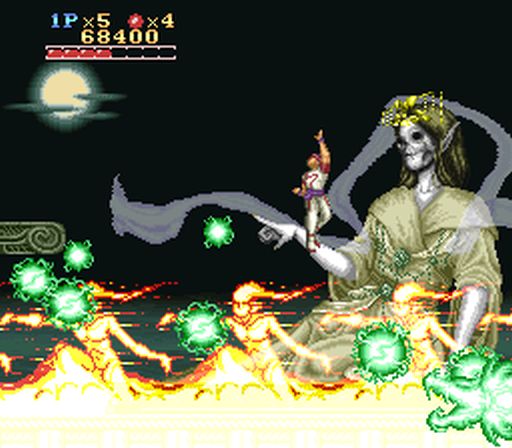Developer: Neverland Publisher: Taito Released: December 1993 Genre: RPG
Although Final Fantasy VII blew the doors off the RPG genre in terms of popularity in the US the genre did have its fans prior to that on the SNES. There were many RPGs localized from publishers big and small and while a lot of these titles were generic there were a few gems in the bunch. Lufia & the Fortress of Doom is not very notable at first glance. Yet it is somehow charming and would spawn a short lived series. This is not the first RPG I would recommend but it is good enough for at least one play through.
Lufia has an interesting premise for its story. Where most games briefly allude to a legendary battle in the past the game starts off in media res with said encounter. It is a simple story hook but one that effective in grabbing your attention and creating interest in what happens next. As the hero Maxim and his allies you fight the Sinistrals that have been terrorizing the world. Only after this battle does the game really start. 99 years have passed since the defeat of the Sinistrals and rumors of their revival have sprung as demon sightings increase. Maxim’s descendant is one of the first to notice these events and will have to take up his ancestor’s sword to protect the world in his stead.
Lufia is as traditional as it gets in terms of its gameplay. It keeps its cast small at four characters that you slowly gain over the course of the game. Technically there are no classes but each fits in a neatly defined role, i.e. Jerrin is your healer, Lufia possesses attack magic, and Guy is physically the strongest. There is no customization like you would expect from a Final Fantasy outside of equipping different rings with varying effects. Lufia is clearly patterned after Dragon Quest and does not stray far from that template. The game knows what it is and keeps things simple.
The interface and its effectiveness vary during battle and exploration. In combat the menus use a diamond style interface reminiscent of Shining Force. It is quick, snappy, and easy to use. Battles do have their quirks however. Enemies are split into groups and if one enemy is killed and another party member is targeting it the game does not default to the next target. This was frustrating in the NES era and is still annoying now. The localization has chosen odd names for spells and items but luckily you can hold a button for a description. Outside of battle you do not have that luxury as they took that feature away for the western release. Trying to manage the game’s innumerable items and learn their effects is more work than it should be.
This is a long game and the pacing is not always at its best. Lufia eventually becomes grind heavy as almost every town features new weapons and armor. In addition enemies become strong enough that you need to over level to keep up. Unfortunately both experience and gold are not in ready supply which slows the game down. When you are not grinding the game is enjoyable as most dungeons feature simple puzzles and creative layouts to find treasures and such. Had they pulled back on the fetch quests and balanced resources better it would have been a much smoother ride.
While Lufia is rough around the edges the game is undeniably charming enough to propel you onward. In terms of setup Lufia has one of the best. Normally you have to wait thirty or forty hours to be at your absolute best for the final battle. Lufia gives you a taste of that from the onset. You would think this would be a spoiler for the eventual end game but instead you play wandering what will be different. The cast have their personality quirks and while it does not approach games like Chrono Trigger It is still enjoyable. The story is backed by a fantastic soundtrack that makes up for the game’s pedestrian visuals. God bless them they certainly tried but do not expect much eye candy.
In Closing
Lufia & the Fortress of Doom is a bit generic but has its heart in the right place. Its charming story helps to overcome its pacing issues to create a solid RPG. There are other titles I’d recommend first but Lufia is not a bad choice if you like classic RPGs.


